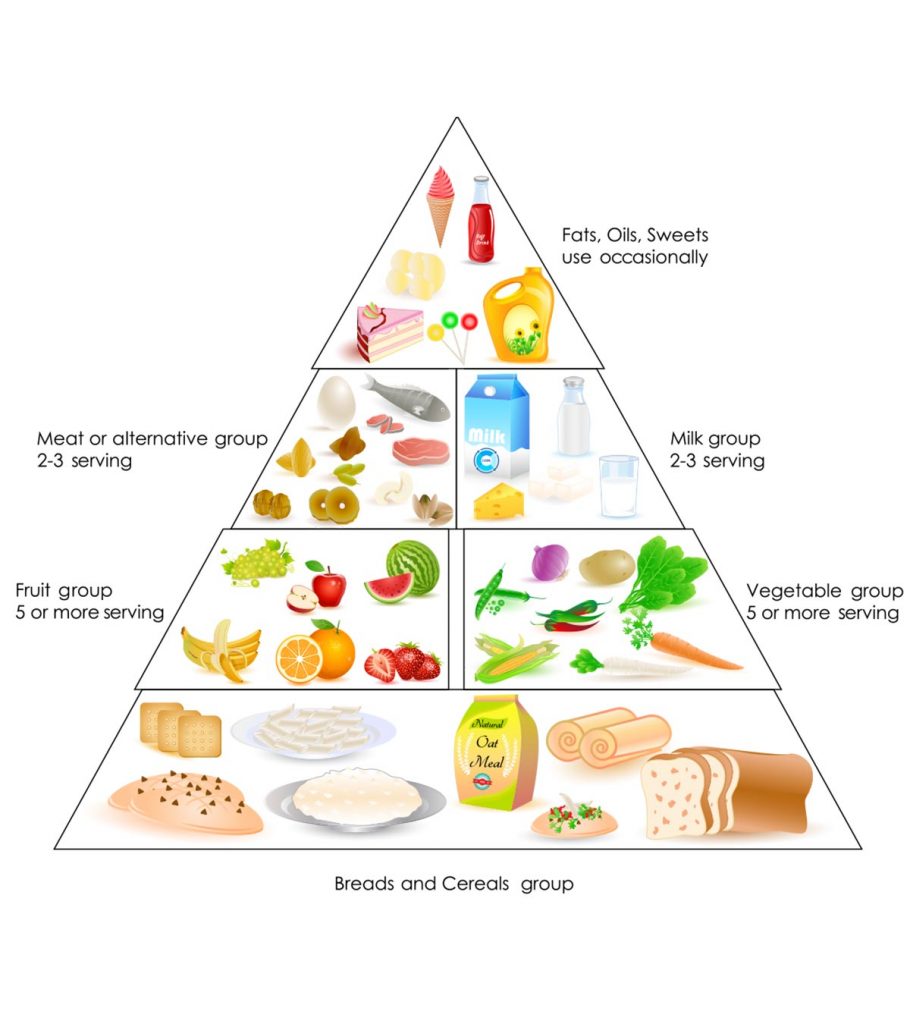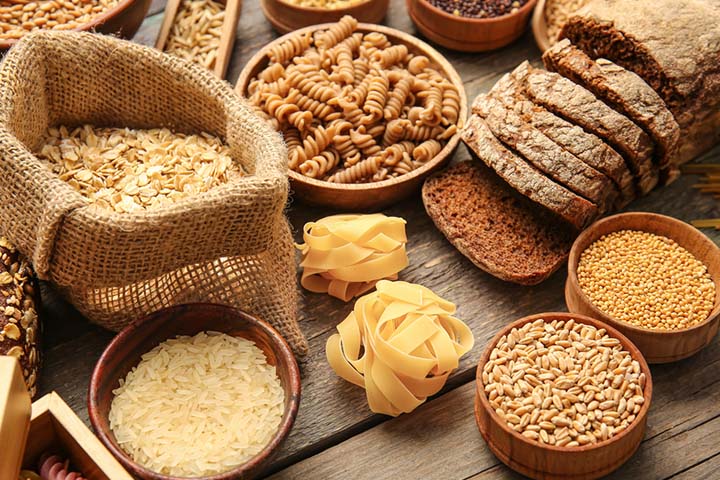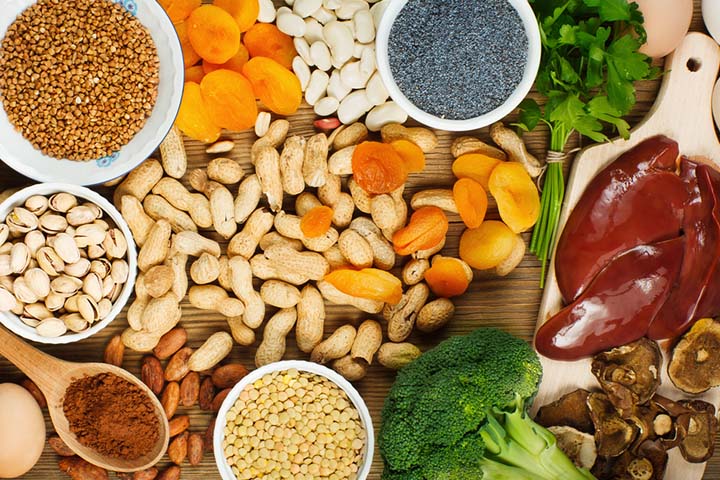If your child gets tired easily or falls sick too often, it may indicate they are receiving inadequate nutrition. To help you keep track of their nutrition and provide them with the required nutrients in the right amounts, you could use a balanced diet chart for toddlers or a food pyramid (a nutrition tool).
A balanced diet ensures healthy eating for kids and should include foods from all the major food groups, namely proteins, dairy, fruits, vegetables, and grains. A global United Nations International Children’s Emergency Fund (UNICEF) report highlights that about one in two children aged below five experiences hidden hunger caused by deficiencies in vitamins and essential nutrients. Therefore, parents must provide adequate and appropriate amounts of each food type to help children stay healthy and active.
Read on to learn about following a balanced diet for toddlers, what nutrients are required for it, and its benefits.
What Is A Balanced Diet For A Toddler?
A balanced diet is highly beneficial for the health and well-being of your toddlers. A balanced diet consists of proteins, minerals, vitamins, and carbohydrates in adequate amounts, and it meets the daily caloric needs of your toddler. Your toddler needs around 50% of calorie requirements from carbohydrates, 30% from fats, and 20% from proteins. As a parent, you need to ensure that your little one eats food from all the food groups that one cannot obtain from consuming unhealthy finger foods of a single type.
Nutrients To Include In The Balanced Diet
Here, we list the major nutrients to include in the toddler balanced diet.
1. Carbohydrates:
Toddlers need the right amounts of carbohydrates for enough energy. Including whole grain foods like bread, cereals, and pasta, in your toddler’s so that they get their daily dose of carbohydrates (1).
2. Proteins:
Proteins are the quintessential nutrient for growth, muscle building and repair, and building antibodies. Include foods like fatty fish, dairy products and eggs in your toddler’s diet.
3. Calcium:
Calcium is extremely necessary for strong bones. Include calcium-rich foods, such as cheese, yogurt, cauliflower, broccoli, spinach, and collard green, in your toddler’s regular diet. Adding these calcium rich foods will prevent the development of calcium deficiency in your toddlers (2).
4. Vitamins:
Vitamins are quite necessary for the normal functioning of the body. In addition, vitamins are essential nutrient requirements that assist in overall child development, including boosting the immune system, promoting growth and development, and aiding the functioning of the cells and various organs. Vitamin A is necessary for good vision. Vitamin C acts as an immune booster and supports brain functioning. Vitamin D is necessary for effective calcium absorption. So include various vitamin rich foods in your toddler’s diet to help him have good health (3).
5. Other nutrients:
Besides carbohydrates, calcium, proteins, and vitamins, your toddler needs the appropriate amounts of iron, amino acids, and omega-3 and omega-6 fatty acids to be healthy. Include iron-rich foods, amino acids, and omega-3 fatty acids in your toddler’s diet to reduce the risk of nutritional deficiencies (4).
Balanced Diet Chart For Toddlers
Here is a diet chart that displays essential foods for toddlers with the right serving size and amount of daily serving. Parents need to choose one or two foods from each food group for their toddlers.
| Food Group | Foods Example | Serving Size | Daily Serve |
|---|---|---|---|
| Grains | Rice PastaBreadCerealRollsWheat BiscuitNoodles |
1 cup ½ – 1 cup1 or 2 slices½ – 1 cup½ – 1 roll1½ cup |
Four servings for toddlers |
| Fruits | Berries ApricotsDatesOrangesPeachesGrapesMangoesPineapplesBananasMelons |
A quarter cup of dried fruits, 6-ounce fruit juice, ½ a cup of frozen raw fruits | Two servings for toddlers |
| Vegetables | Cooked veggies CauliflowerMedium potatoCarrot (sliced)SpinachBroccoliTomatoSalad |
Half a cup cooked vegetables and one cup raw, leafy vegetables | Two servings for toddlers |
| Lean Proteins | Fish EggsDried beansLentilsPeasPeanut butter |
1 medium filet Cooked beans ¾ cupCooked lentils ¾ cupCooked peas ¾ cup1 tablespoon |
Half serving for toddlers |
| Dairy Products | Milk CheeseYogurtCustard |
250 ml 40 gms200 gms250 ml |
One serving for toddlers |
| Fats and Oils | Low-fat mayonnaise Soft margarineLight salad dressingVegetable oils |
1 tablespoon1 tablespoon1 tablespoon1 tablespoon | One serving for toddlers |
A balanced diet, including balanced snacks, meals, and nutritious drinks, helps promote toddler growth and development by providing optimum nutrition. Therefore, it is important to follow the dietary guidelines and incorporate different foods into their diet. Provide toddlers with optimum carbohydrates for energy, proteins for growth and repair, calcium for strong bones, vitamins for good immunity, and various other nutrients for overall well-being. If you are not sure of the right foods and their ideal quantity, refer to the balanced diet chart for toddlers. Make sure to offer a variety of healthy snacks in different forms and flavors to keep toddlers interested and prevent fussy eating behaviors. Consult a pediatrician if you are further doubtful of your child’s nutrition.
Key Pointers
- The health of a toddler is directly dependent on their food habits, which is why a balanced diet is paramount for them.
- A nutritious diet consisting of proteins, carbohydrates, fats, essential vitamins, and minerals should be provided to toddlers.
- Foods that should be included in a toddler’s diet include whole grains, dairy, fruits, vegetables, lean proteins, and healthy fats.
- A properly balanced diet, including a variety of healthy foods, should be planned to maintain a toddler’s health and positively influence their future dietary habits.













